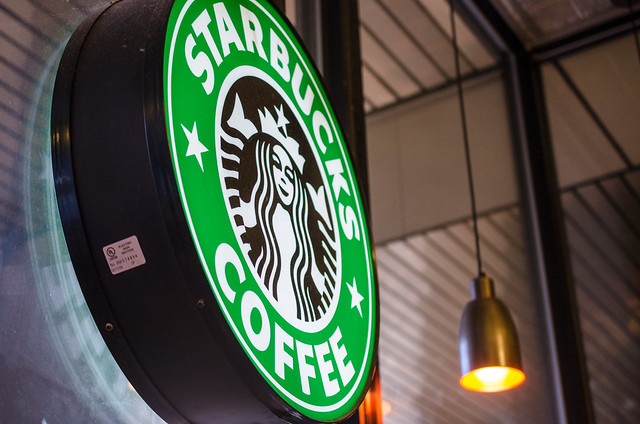
Every day on my daily route to work or class, I pass a Starbucks. This particular Starbucks location is appearance-wise no different from any other. However, it is unlike one I have seen before. From about 7-11 a.m. there is an immense amount of traffic clogging the Starbucks parking lot and surrounding streets. So much traffic that a police officer doing traffic control is needed every morning. For many, this is an extreme inconvenience. I can even say for myself that I have felt the urge to get a Starbucks drink and simply accepted the fact that I will be waiting in the drive-thru line for about 15 minutes. However, this raises the question: Why do we feel obliged to wait in long lines to get a specific drink? In my neighborhood, there are countless other coffee shops, so why do I choose to go to Starbucks, even if it causes me inconvenience? Why do consumers pick something even if it isn’t the most logical choice? This ongoing trend of people obsessing over Starbucks goes to say something about customer loyalty.
To begin with, Starbucks has had a history of scandals that have shortly impacted the general population. I emphasize shortly because it seems a group of people are upset by a scandal for a few days and then suddenly it seems to disappear. They have been sued multiple times, sparked controversy because of colored cups, ingredients in their drinks and racial biases. Even for me, it is difficult to remember all of these scandals. This shows how their customers choose to ignore specific issues, but it begs the question of what makes this brand different from others with scandals.
A survey conducted in 2017 by Foursquare found Starbucks No. 1 for loyalty among chain restaurants. The coffee company does various things that lead to strong customer loyalty. First, Starbucks is the largest coffee chain in the world, providing convenience in various locations. Oftentimes, Starbucks may be the only coffee shop nearby or just happens to be on the way to one’s destination. In addition to this, they offer a loyalty program that offers discounts, refills and can even be used at other stores, which encourages customers to keep coming back. They have strong customer service, personalized orders and often offer products before other coffee shops do (pumpkin spice latte, straw-free, milk alternatives). This combination of things that allow for a great customer experience leads to the customers returning to get their caffeine fix.
With these things in mind, influencer marketing is also a strong contributor to Starbucks’ customer loyalty. Starbucks itself does not seem to sponsor a lot of posts; however, influencers post freely about Starbucks, which is essentially free promotion. A large reason for this is that Starbucks releases new drinks seasonally, drawing people in to continue trying their products. Many influencers do reviews on their orders and promote the new products without sponsorship.
In all, a collection of services lead to Starbucks’ premium customer loyalty. This is an example of how customer loyalty is expanded into multiple outlets, not just one.
